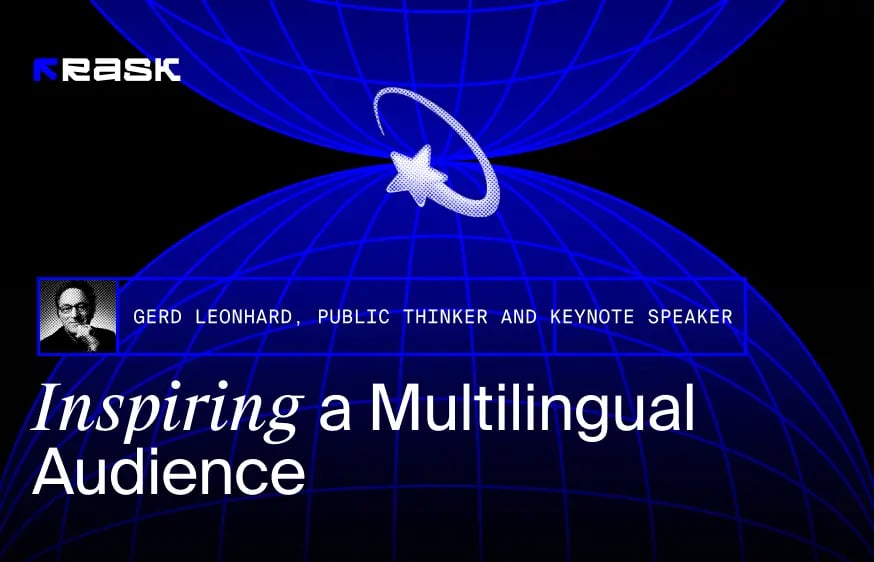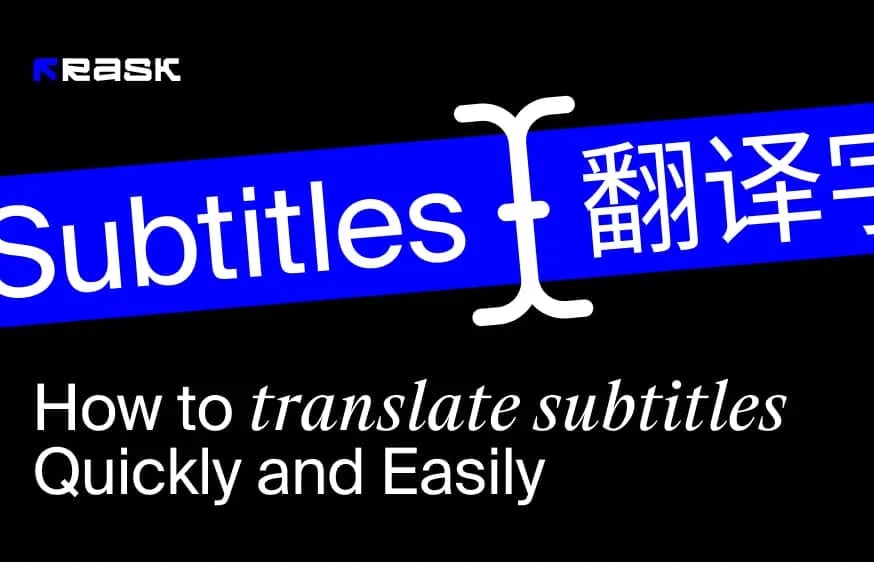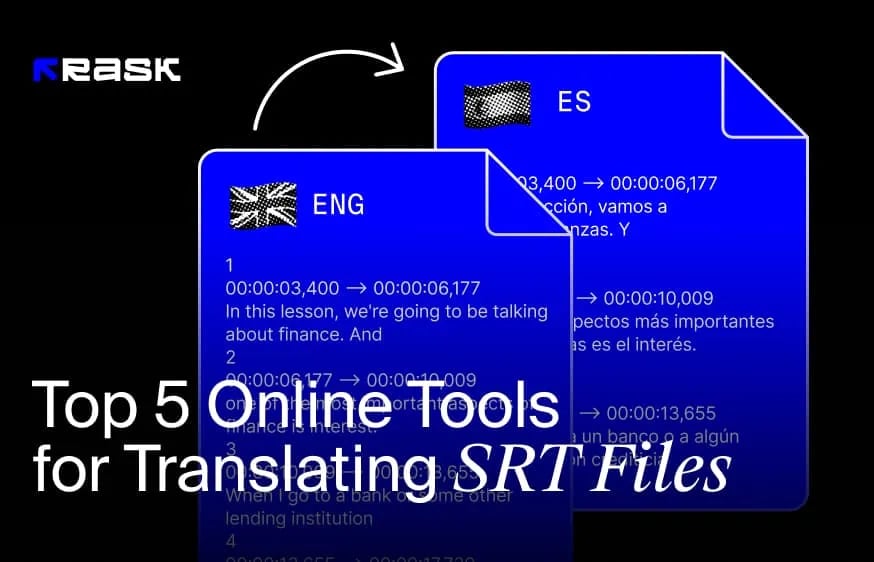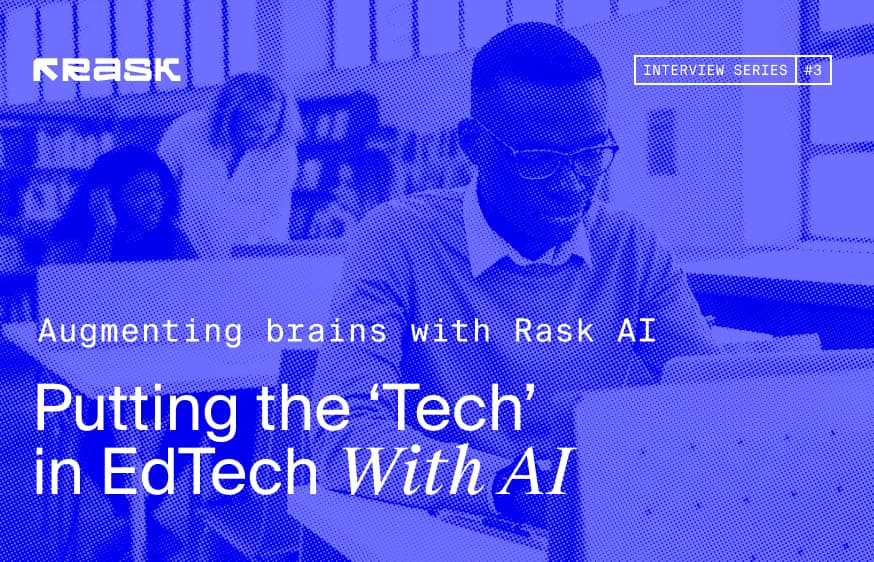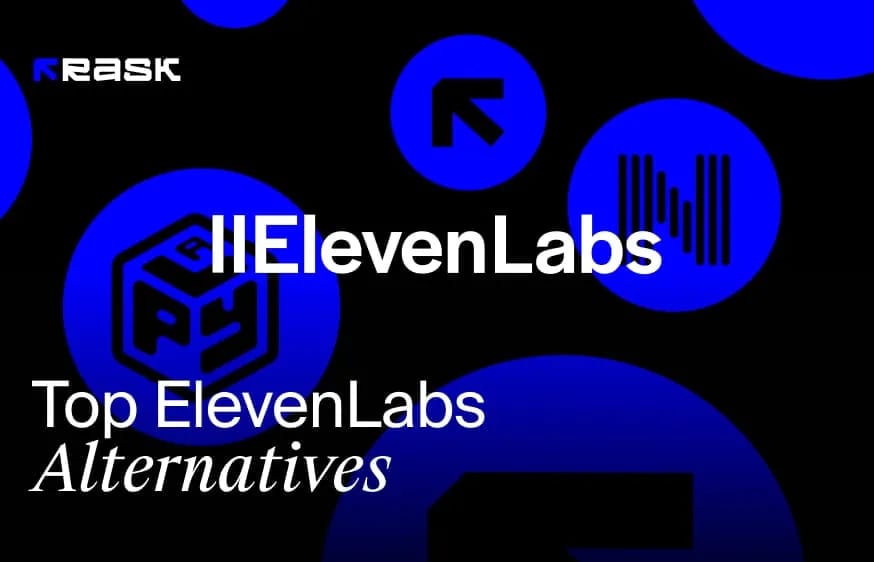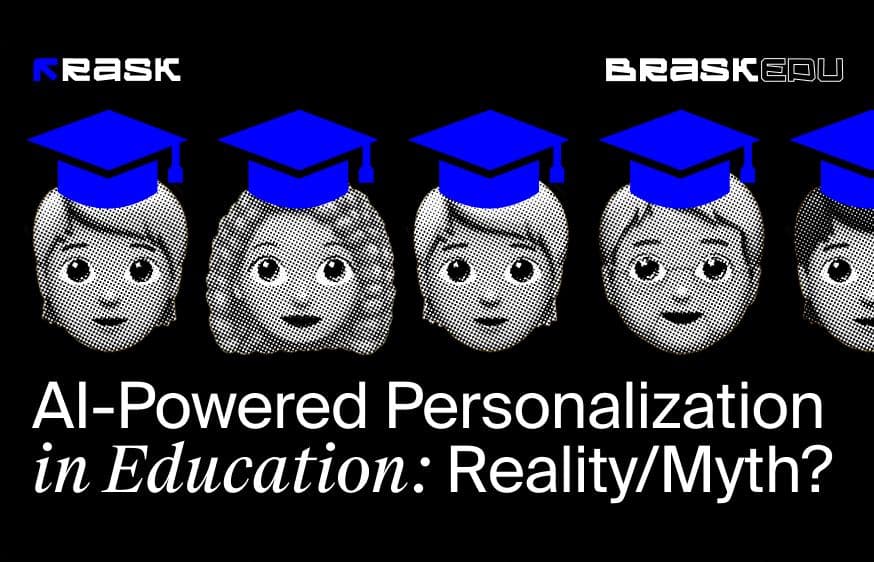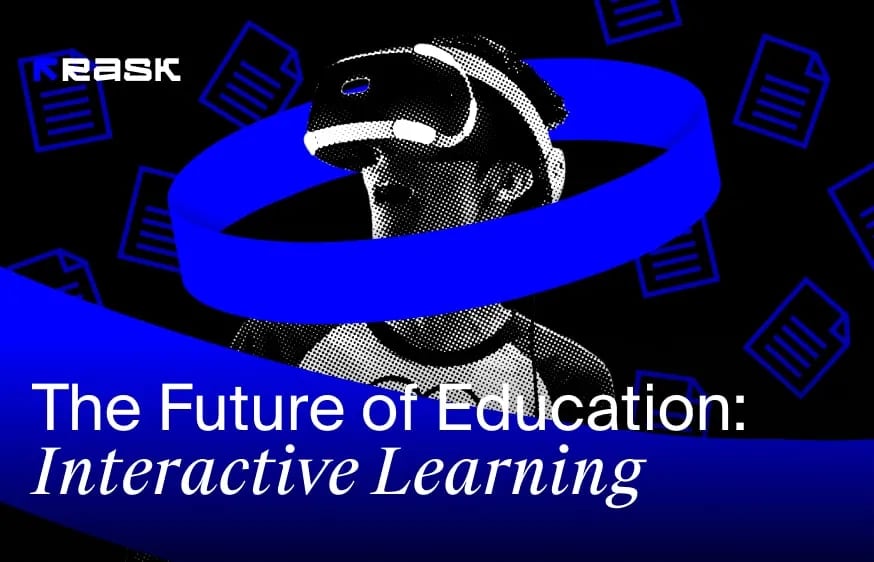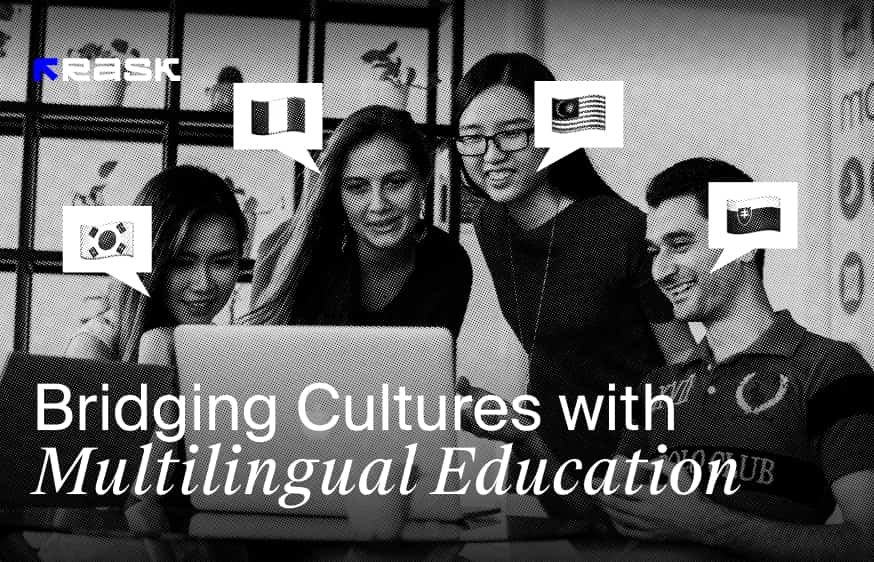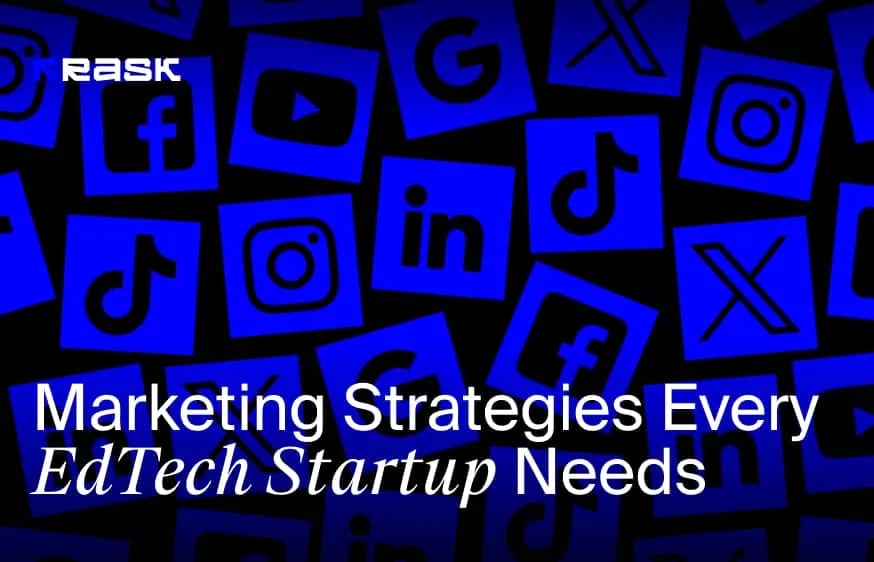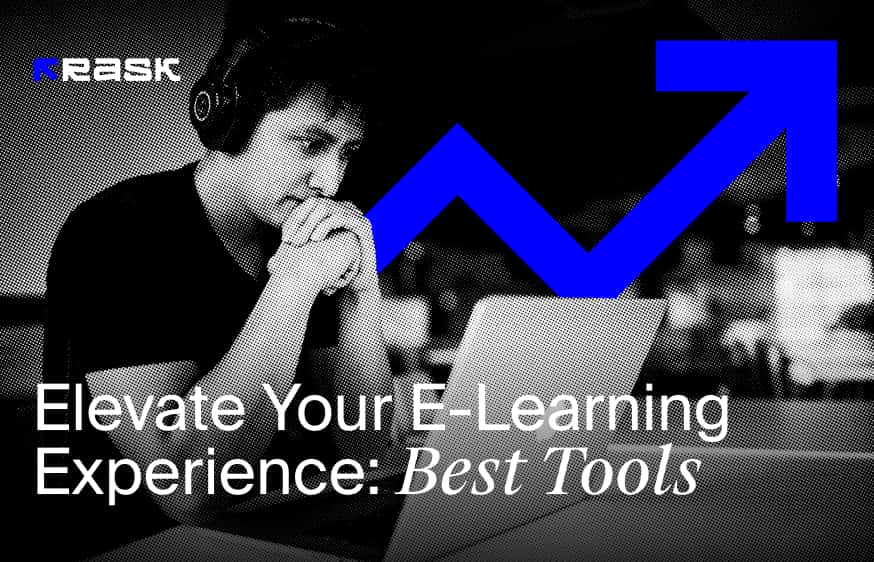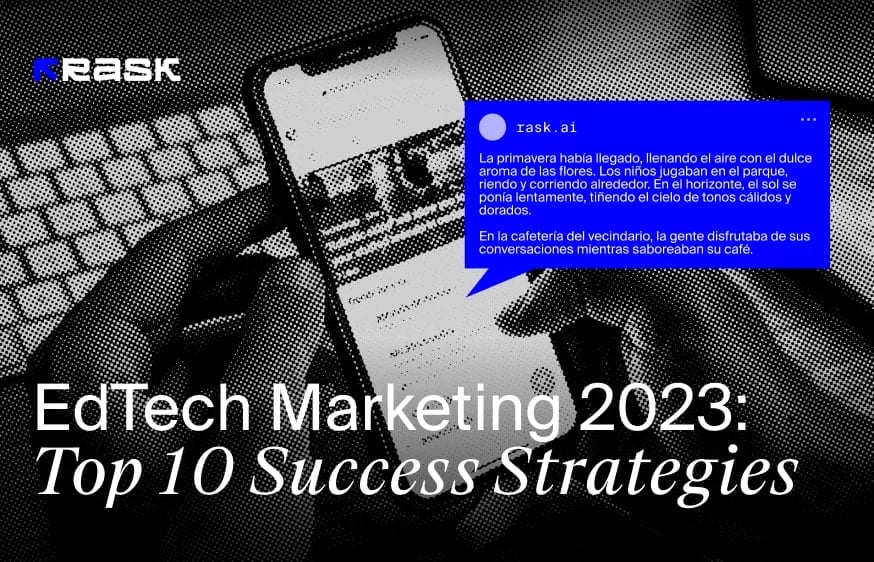AI has quickly become integral to our daily lives. Now, artificial intelligence (AI technology) is impacting almost every industry, offering streamlined and automated task execution. From sports apps, where AI can quickly analyze input data to help you improve your sports performance, to education, where AI is paving the way towards more personalized and effective learning.
Even though AI isn't used at all universities and schools yet, more and more EdTech companies are starting to develop courses powered by artificial intelligence and personalizing learning experiences. AI helps with identifying knowledge gaps and providing targeted feedback, to mention a few benefits.
AI tools designed for education have revolutionized traditional learning methods, enabling education for people all across the world, making it easier for students to grasp the material, and creating unique virtual classrooms. With more EdTech companies adopting innovative education technology, it is wise to start exploring this technology and look at the prospects of the EdTech industry.
Is AI the Future of Learning?
One thing is clear: AI-based education is changing traditional approaches and shaping the future of the industry. AI tools and solutions designed for education have a vast range of features. These AI tools can analyze large volumes of data using sophisticated algorithms powered by machine learning (ML) and offer adaptable educational experiences. AI tools also help students by offering more personalized learning content, providing instant feedback, and enabling access to technologies like AR and VR in education.
The use of conversational AI tools in education is on the rise. These include chatbots and virtual assistants that promote independent learning. AI-powered chatbots are designed using natural language processing (NLP) and machine learning (ML) algorithms. That means they can offer quick and highly personalized support to students. For example, these chatbots can answer questions and guide students throughout the learning process, leading to improved academic results.
It is more important than ever to build an engaging and interactive learning environment, allowing students to grasp concepts more easily and better retain information. As a result, AI education tools rapidly gain traction within the educational sector through customized courses, interactive lectures, and gamified classrooms.
According to the source, artificial intelligence in the educational sector is expected to grow from $3.45 billion to 23.82 billion by 2030. In addition, this resource suggested that the global e-learning market could reach $462.6 billion, growing at a CAGR of more than 13% by 2027.
The above statistics show that companies are investing in more streamlined and personalized education powered by AI. With a growing number of AI applications being launched today, such as robots, virtual assistants, chatbots, digital classrooms, and computer vision tools, experts believe that AI is becoming indispensable in the modern learning landscape.
Benefits of AI to Students
By letting students dive deeper into the technological world from a young age, we give them a head start in the future workplace. That is because in the majority of companies and in many domains, the use of technology is a must. However, there are many more benefits of including artificial intelligence in education. Some of the key ones are listed below:
- Analyze learning gaps: Some AI tools can assist in analyzing student performance by comparing different semesters and identifying learning gaps that might be missed by the professors.
- Increase personalization: Thanks to its ability to analyze large data volumes, AI can identify learning patterns and adapt educational content to specific students.
- Answer questions: AI tools, chatbots, and a virtual learning assistant we described above can answer students' questions within seconds. They can answer questions without human help as they are trained by humans in advance and can process a rich set of data immediately.
- Provide timely feedback: With the help of AI tools, students also benefit from timely and personalized feedback. This helps them to get back on track when they are lost in the subject, improving academic results and student engagement.
- Allow for gamification: AI tools are perfect companions for learning gamification. By providing gamified experiences within the learning sphere using VR and AR, AI helps to significantly increase engagement and satisfaction in students.
- Reduce time: Some institutions allow students to use AI tools to make notes during the lecture or brainstorm when they write text tasks. This enables students to save time and focus on higher-level skills such as analysis or creativity.
- Increase accessibility: AI can transcribe text, reuse different types of content, add captions, and quickly translate video lessons to different languages. These features enable higher accessibility and make education available for different students all across the world.
- Adapt to neurodiversity: Some neurodiverse students may struggle with traditional methods and concepts of education. Since AI tools offer personalization, they can also help such students by providing customized learning settings and methods.
Benefits to Educators
Even though artificial intelligence tools are mostly focused on improving the learning experience and academic results of students, they still have a vast range of benefits for professors and institutions alike. Here are some of them:
- Save time: Just like in the student's case, AI tools can cover lots of time-consuming tasks that previously required human resources. it can cover tasks like record creation, keeping, marking, preparation for lectures, video translation, and feedback creation. This allows professors to save time and come up with creative ideas that technologies would not be able to provide.
- Generate content: AI is an incredibly useful tool for content generation. It can help teachers with ideas for lessons, creative tasks, tips for personalized learning experiences, and the actual generation of educational content based on the script or data professors feed to the AI tools.
- Analyze student performance data: AI tools can collect and monitor the student's performance based on factors from the professors' input. They can also help track attendance, submission of assignments, and performance at exams over a specific period, as well as highlight troubling behavior patterns.
- Motivate and engage students: Modern students need engaging experiences. Yes, even in education! AI tools are a perfect choice for increasing motivation and engagement in students of different ages and levels.
Top AI Use Cases in Education
Automation of Content Creation & Translation
Some AI-powered content creation tools allow educators to create learning course materials like worksheets, quizzes, videos, and interactive presentations. These tools use AI and ML algorithms to help teachers streamline and automate content creation and translation processes.
One of the biggest problems for EdTech and e-learning platforms that prevent them from scaling is the need to translate content into different languages. While these companies could hire human translators, the costs and time they will spend on the task will drastically affect the entire experience.
That is where AI-powered tools come into the picture. When choosing tools for content creation and translation, EdTech and e-learning companies can automate the translation process, saving time and money. AI tools are powered by NLP algorithms, so they can generate new content by analyzing existing material. These tools can also keep the brand style and tone of voice while translating text and video material to many languages to your liking.
AI tools can cover many tasks to speed up scaling with the help of human specialists. That means that it is always best for human translators and experts in the required field to check the generated content and edit it according to the expertise or business needs.
Content creation tools help in the classroom in the following ways:
- Allow teachers to reuse content, uploading text and converting it to video and vice versa;
- Translate text and video materials to different languages within minutes;
- Adjust teaching strategies based on specific needs or student performance.
Overall, the goal of content creation tools in education is to reduce teachers' workloads and help them create more effective learning materials.
Enhancement of Content Curation
In addition to generating, reusing, and translating content, AI tools are also effective in content curation. We see a big challenge among EdTech and e-learning businesses to operate with the abundance of unchecked, unfiltered data that needs to be made clearer. So most of them get lost within it and find it hard to always develop compelling, high-quality, and engaging lessons.
Using AI and ML allows EdTech and e-learning platforms to provide curated and personalized content that aligns with students' latest needs, preferences in studying format, type of material they want, fields of interest, and learning goals. This increases engagement and knowledge retention during studying.
In addition, AI tools can provide timely and personalized feedback on students' performance or previously asked questions so they feel supported and guided whenever they need it. Through targeted recommendations and personalization, AI acts like virtual tutors that help enhance motivation and improve academic results in students.
Improvement of Old Learning Materials
AI tools are also effective in improving the quality of old or outdated learning materials that do not fit the modern needs of students. These materials could be historical documents and films. AI tools can help enhance the quality and resolution of old materials so they fit modern standards and are more engaging to students.
Updating content with the help of AI tools makes it easier for students to analyze, read, and understand learning materials, leading to better comprehension, deeper understanding of the material, and, ultimately, better academic results.
For that task, you will need a version of generative AI known as Generative Adversarial Networks(GANs). These tools focus on restoring low-quality images and removing simple watermarks.
This is particularly important for art and design e-learning domains since restoring low-quality images can help with detecting important details of artworks. It is also effective in the history sector since AI helps in scanning and restoring research papers and old documents.
6 Best AI Tools for Students
1. Brask Education
As we learned, Rask AI is a leading video editing and localization tool powered by AI. The team that launched Rask AI is now working on launching a new product - Brask Education, which will revolutionize the educational sector as one of the most promising AI tools for students.
Powered by advanced AI technology, Brask Education will help to create individual learning paths for each student. Its algorithms can analyze a student's performance, knowledge gaps, student's pace, and studying preferences to develop highly personalized learning approaches. This means that EdTech and e-learning companies will be able to develop a curriculum tailored to students' strengths, weaknesses, and interests.
These are some key features Brask Education has to offer:
Adaptive Learning Content
Brask Education can adjust the difficulty level of learning material according to the learner's ability. Let's say a student excels in math; then AI within the tool might adapt the content within the material so the learner gets more complex tasks. When a student struggles with math, then the tool may provide more simple tasks so the learner can revisit foundational math concepts.
Automating and Transforming Content Creation
Brask Education uses 3 buckets to create educational content:
- Analyze and use open-source content (like YouTube videos);
- Adopt and transform existing content.
- Understand contexts and cases to convert videos into audio, text, or short formats.
Generate Content with Gen AI
Brask Education's AI tutor can help students go through the course more easily. This tool can answer questions and guide learners through the course, helping them find the needed material and keep them engaged during the process.
2. Khan Academy (Khanmigo)
Khan is a US-based non-profit educational organization launched in 2006 by Sal Khan. With the key goal of providing a set of online tools that help students get modern, customized education, Khan Academy makes education available for students all across the world. Learning materials are available in the form of video lessons, though educators can also benefit from a range of supplementary practice exercises and materials presented on the company's website.
In March 2023, the Khan Academy launched a new product called Khanmigo. It is a handy AI tool designed specifically for education. It acts as a one-on-one tutor, lesson planner, writing coach to improve writing skills, as well as computer science teacher - all within one AI driven educational platform.
Khanmigo can mimic a writing coach by generating prompts and customized suggestions, encouraging students, and motivating them while they write and collaborate. The tool also offers interactive experiences and real-time personalized feedback that can help language learners improve their skills and feel supported throughout the process.
3. SanaLabs
SanaLabs was created to empower the world through world-class learning and knowledge. Its founders identified a big challenge in the market - the vast majority of human knowledge is still inaccessible. So SanaLabs was launched to unlock it, making online education easier and more accessible to everyone exactly when they need it.
Automating everything from user enrollment to training reminders, SanaLabs is a good solution for any business that wants to cut the routine work and focus on more valuable tasks. These are some of the key features this AI platform provides:
Scaling learning journeys - SanaLabs has plug-and-play integrations, so the platform can quickly and automatically enroll users in various learning programs and trigger reminders according to user data and performance.
Customization - Improve your brand management with SanaLab's ability to set custom logos, fonts, and colors while also creating custom email templates.
Instructor-led scheduling - Learning within the business environment is easier with SanaLab's ability to streamline scheduling for virtual, hybrid, and in-person learning sessions.
Personalization of training programs - SanaLabs is a good solution to customize and personalize learning courses, so each program fits the learner's knowledge level and offers unique recommendations based on activity and area of interest.
Live group sessions - Built directly into the SanaLabs platform, a virtual classroom makes the learning experience easier and more enjoyable through online learning and hybrid sessions.
Increased engagement - SanaLabs has a vast range of educational formats you can use to increase engagement. Whether your students prefer quizzes, polls, sticky notes, or videos - the platform covers your needs.
Automatic analytics - Being powered by state-of-the-art machine learning algorithms, SanaLabs can automate the process of gathering data and generate real-time insights for you.
4. Colossyan
Colossyan is an AI-powered platform that can create videos from text. The platform has a vast range of features, including AI avatars that act as presenters for your video content. Users can also upload PDFs or PowerPoint slides to convert them into engaging educational videos with just one click.
The goal of Colossyan is to create an AI video generator perfect for EdTech and e-learning companies. Designed to significantly simplify the video creation process for educators, content creators, and marketers, Colossyan creates high-quality and personalized video course materials even without the need for any technical video editing experience.
Colossyan AI video platform uses machine learning algorithms (ML) and natural language processing (NLP) technologies to improve the learning experience. It is also enriched with AI avatar and rendering technologies, so the platform can produce presenter-like videos that make video materials more appealing.
With an incredibly easy, user-friendly interface and the ability to customize learning video materials, Colossyan offers more than 50 diverse AI avatars, 70 languages for video translation, and the ability to auto-translate videos with the click of a button.
Avatars created by the platform can also be customized since they are available for different genders, ages, and ethnicities and have natural movements for content authenticity.
5. BYJU’S
BYJU's application makes learning accessible, interactive, adaptive, and customized. This is achieved through animated videos, games, quizzes, etc. The goal of BYJU's app is to adapt the learning material to each student's needs, preferences, and learning style.
Delivering a first-class learning experience, BYJU'S also has several innovative partnerships with leading world companies, such as Disney and Google. This helps the app drive even more engagement and helps many more students become active and motivated learners with outstanding academic results.
BYJU'S proven academic methodology includes:
- Every class is carefully designed by experts with teaching methods that are proven to give results;
- Classes focused on practicing and revising lessons, rather than solely on theoretical instruction
- Tests, quizzes, and worksheets for better practice, retention, and lesson customization.
6. Fetchy
Fetchy has more than 50 productivity tools designed to help improve educators' expertise and efficiency. powered by AI, Fetchy allows for a modernized and personalized online education experience.
Fetchy can simplify lesson planning for teachers so they can quickly and easily create engaging lesson plans. Several custom features within the app also help with measuring and monitoring student progress, offering instant personalized feedback on each student to identify weak spots and strengths.
In addition, Fetchy can help teachers facing classroom roadblocks by enabling access to expert advice and support features to gain valuable insights. The customization feature allows educators and institutions to address unique students' needs and deliver educational material in preferred formats, increasing engagement and personalization throughout the learning experience.
To Wrap it Up
AI has the potential to revolutionize the way we think about education and the way we learn as well. Even though AI tools need some time to be fully adopted within the domain, the best AI tools for students and educators have already proven their effectiveness in the learning industry.
Researchers and developers will continue to work on improving tools and platforms, exploring the potential of AI in reducing manual efforts and improving the quality of education all across the world.
FAQ
There are several of the best AI tools for students available today. Some of the most well-known are Brask Education and Fetchy. These tools help educators create more engaging and personalized language learning materials while reducing manual tasks and streamlining the educational process for both parties.
Khanmigo, launched by Khan Academy, is the best free AI tool for education. However, you can also consider a free version offered by other apps we mentioned in the article to check their available features and then decide which tool to use.
AI is a perfect campaign for education. AI wasn't designed to replace humans, so it is best to use it as an assistant. There are so many best AI tools for students that offer a range of features that may benefit students' language learning experience. For example, an AI chatbot can provide personalized and instant feedback; other tools can translate videos for education accessibility and help students make notes during lectures, letting AI tools do all the work for them.
The answer will hugely depend on the exam's nature and your skills. For example, if your exam is writing an essay, then Grammarly powered by AI would be a way to go to improve your writing skills. In contrast, Mathly is an excellent solution for improving your math skills before an exam. The list of best AI tools for students is vast, so it is also best to choose the app based on your specific needs.
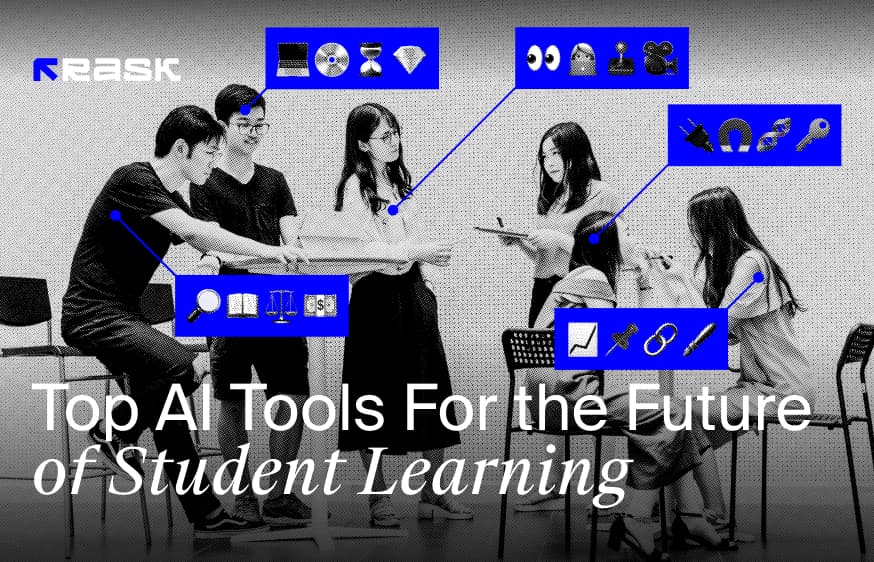

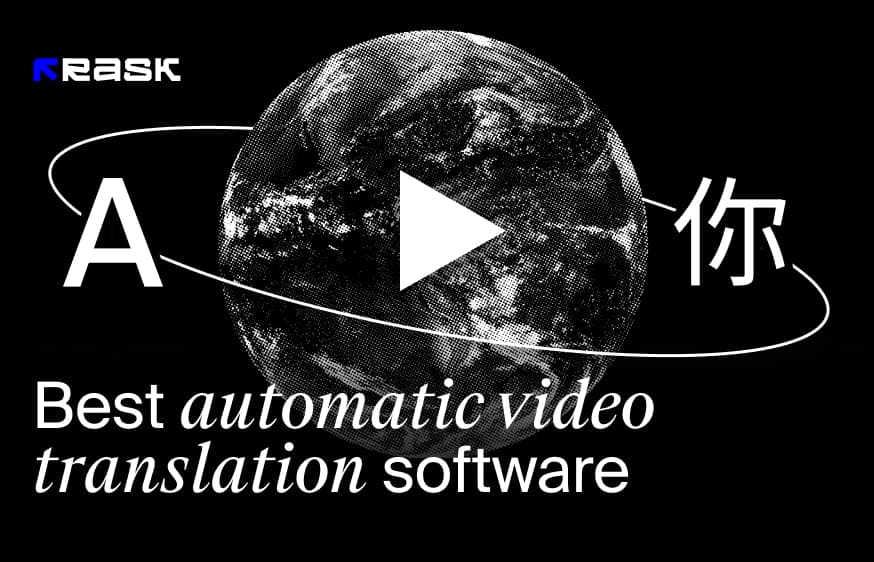
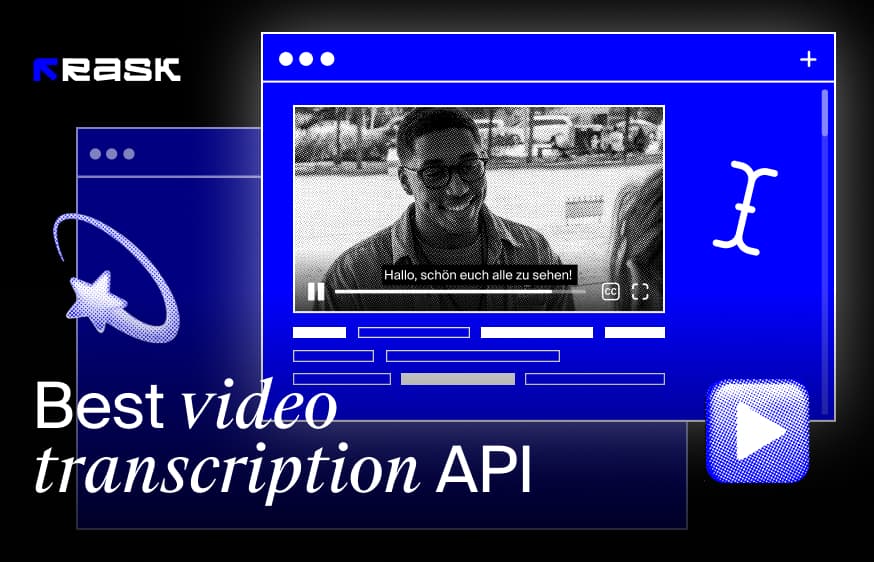
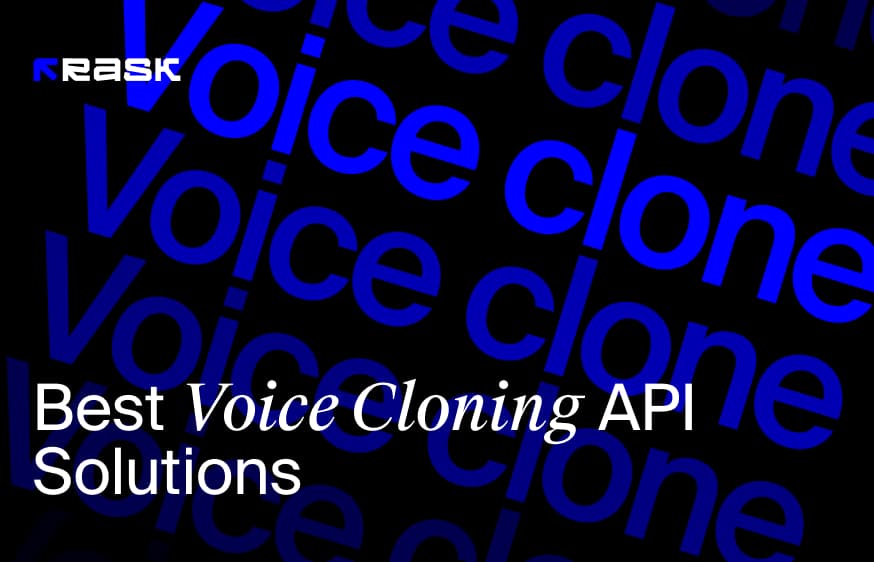
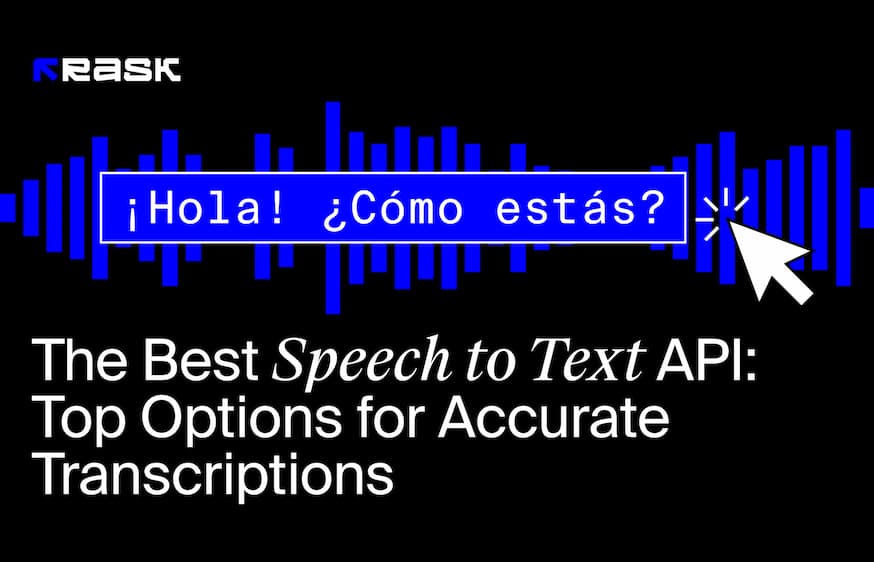
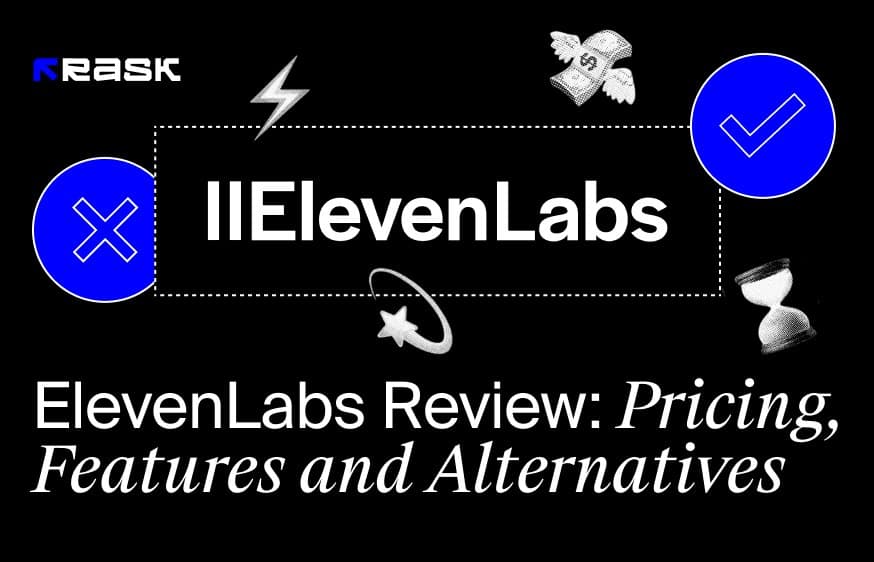
.jpg)
.webp)
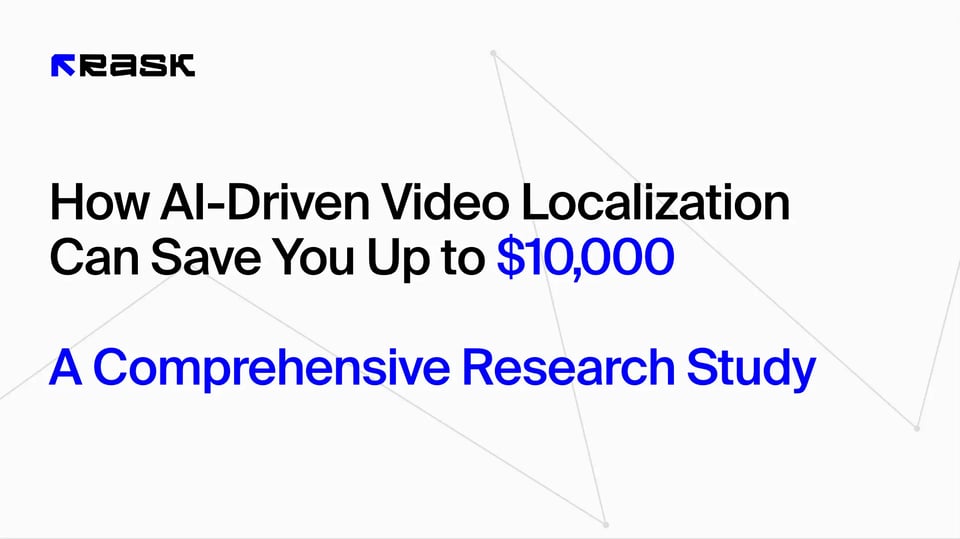
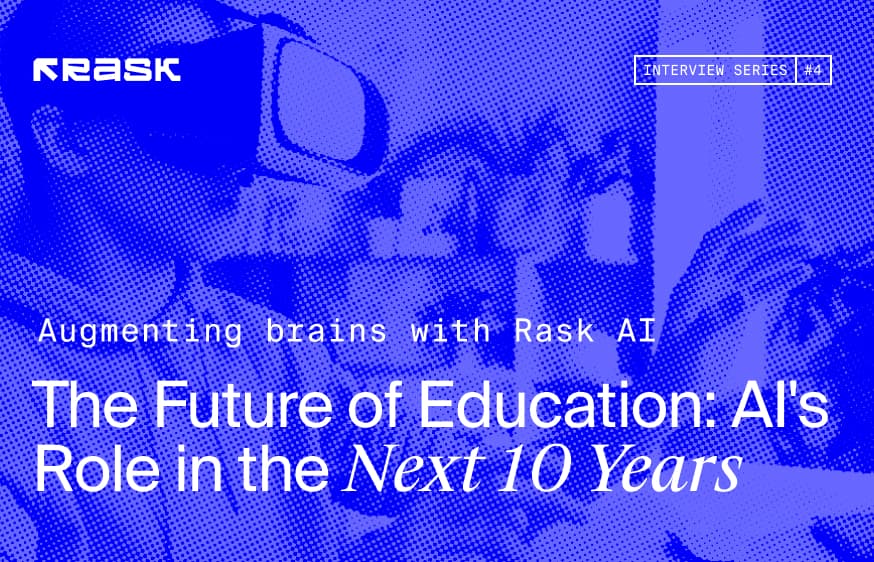
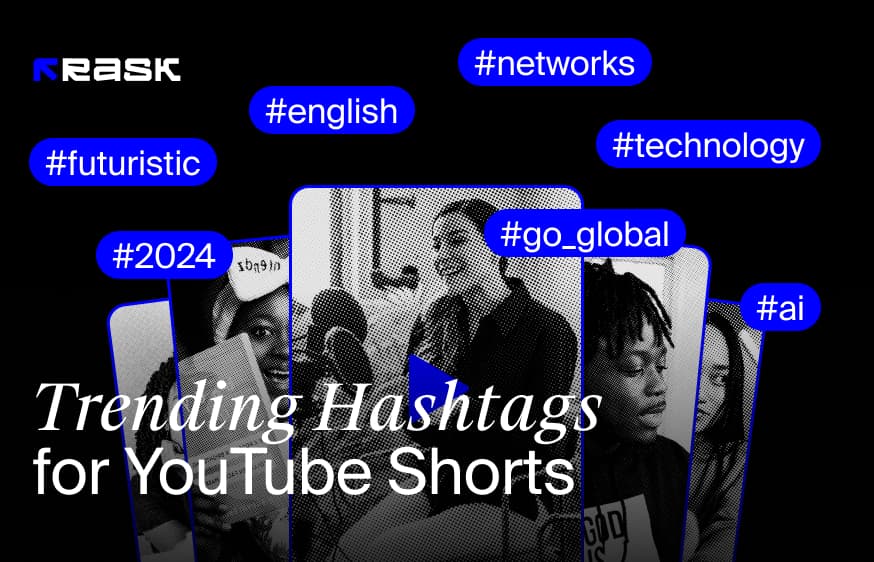
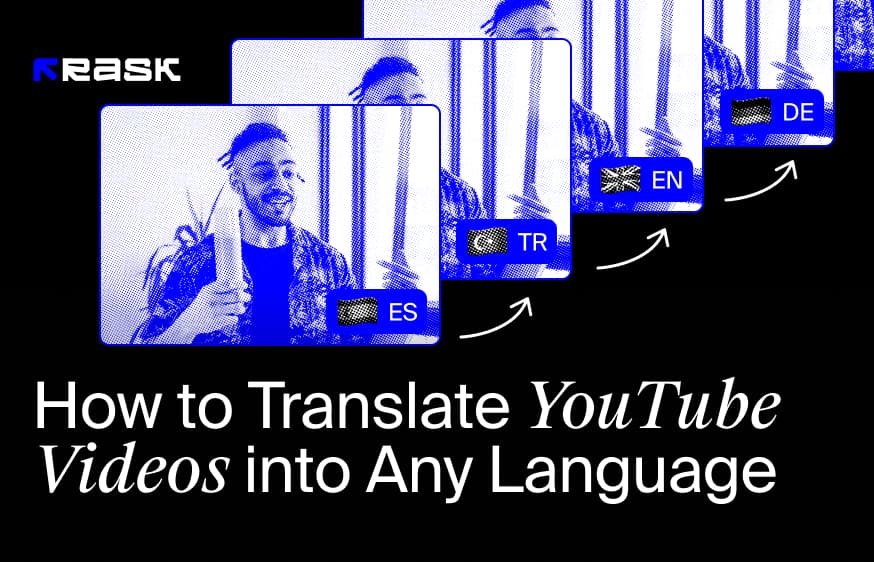
![8 Best Video Translator App for Content Creators [of 2024]](https://rask.ai/cdn-cgi/image/width=960,format=auto,fit=scale-down/https://cdn.prod.website-files.com/63d41bc99674c403e4a7cef7/6668a3dcd3175bd1d1c73c81_Best%20video%20translator%20apps%20cover.webp)
![Best AI Dubbing Software for Video Localization [of 2024]](https://rask.ai/cdn-cgi/image/width=960,format=auto,fit=scale-down/https://cdn.prod.website-files.com/63d41bc99674c403e4a7cef7/66685014f68137eb05c89c16_Cover.webp)
